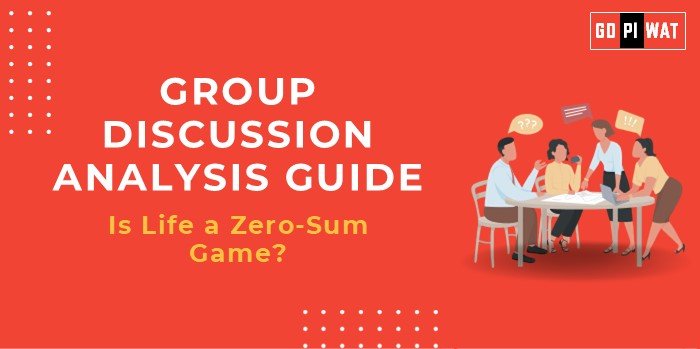📋 GD Analysis Guide: Is Life a Zero-Sum Game?
🌐 Introduction to the Topic
Opening Context: The concept of life as a zero-sum game—a scenario where one person’s gain is inherently another’s loss—has profound implications in fields ranging from economics to ethics. Its relevance extends to decision-making frameworks in both professional and personal spheres.
Topic Background: Rooted in game theory, the zero-sum concept explores how resources, success, and outcomes are distributed. While it applies neatly to certain competitive scenarios, life itself is more complex and nuanced, often encompassing win-win or win-lose dynamics.
📊 Quick Facts and Key Statistics
- 📚 Game Theory Origin (1944): John von Neumann and Oskar Morgenstern formalized the zero-sum concept, highlighting its applicability in economics.
- 💰 Resource Inequality (2023): The top 1% of global wealth holders own 38% of total wealth, often fueling zero-sum perceptions.
- 🤝 Collaborative Growth: Studies indicate that businesses embracing collaboration can increase total market size by 5-10%.
- ⚔️ Conflict Examples: 60% of geopolitical disputes are viewed as zero-sum struggles over land or power (UN Data, 2023).
🎯 Stakeholders and Their Roles
- 🧠 Economists and Thinkers: Analyze zero-sum perceptions in resource allocation and competition.
- 🏛️ Governments: Shape policies that either reinforce or mitigate zero-sum dynamics.
- 🏢 Corporations: Balance competitive strategies with collaborative opportunities.
- 👥 Citizens: Influence the narrative through consumption patterns and community actions.
🏆 Achievements and Challenges
✨ Achievements:
- 🤝 Collaborative Models: Cooperative businesses like cooperatives and open-source initiatives debunk zero-sum myths.
- 📈 Economic Growth: Nations achieving inclusive development, e.g., Scandinavian countries, showcase that shared growth benefits all.
- 🌍 Global Agreements: Efforts like the Paris Climate Accord reflect win-win diplomacy over zero-sum conflicts.
⚠️ Challenges:
- 🔍 Perceived Scarcity: In competitive job markets, zero-sum mindsets thrive.
- 📉 Inequality Amplification: Disparities often reinforce the belief that success is limited.
- ⚔️ Geopolitical Struggles: Regions like the South China Sea epitomize zero-sum conflicts.
🌍 Global Comparisons
- 🇸🇪 Positive Examples: Nordic nations’ equitable policies show shared prosperity.
- 🌏 Negative Examples: Resource struggles in war-torn regions highlight zero-sum dynamics.
🗣️ Structured Arguments for Discussion
✔️ Supporting Stance:
“Life mirrors a zero-sum game in limited-resources scenarios, evident in global wealth distribution.”
❌ Opposing Stance:
“Collaborative systems and technology demonstrate that shared success is possible.”
⚖️ Balanced Perspective:
“While some situations mimic zero-sum games, broader contexts often allow mutual growth.”
🧠 Effective Discussion Approaches
💡 Opening Approaches:
- ❓ Compelling Question: “Does competition inherently limit collaboration?”
- 📊 Highlight Contrasting Data: “Global wealth disparities suggest zero-sum dynamics, yet cooperative models challenge this notion.”
🤔 Counter-Argument Handling:
- ✔️ Acknowledge Scarcity: “Scarcity is a factor, but examples of abundance creation through innovation exist.”
🔍 Strategic Analysis of Strengths and Weaknesses
- ✔️ Strengths: Opportunities for collaboration, technological progress enabling shared success.
- ❌ Weaknesses: Persistent inequalities, resource limitations in specific contexts.
- 🌟 Opportunities: Inclusive policies, global cooperation.
- ⚠️ Threats: Geopolitical conflicts, economic downturns intensifying zero-sum perceptions.
📚 Connecting with B-School Applications
- 🌐 Real-World Applications:
- Applying negotiation tactics balancing competition and collaboration.
- Analyzing case studies in business strategy or diplomacy.
- ❓ Sample Interview Questions:
- “Can business always avoid zero-sum dynamics?”
- “How does globalization challenge the zero-sum paradigm?”
- 🎓 Insights for Students:
- Develop strategies for win-win outcomes in internships and projects.


